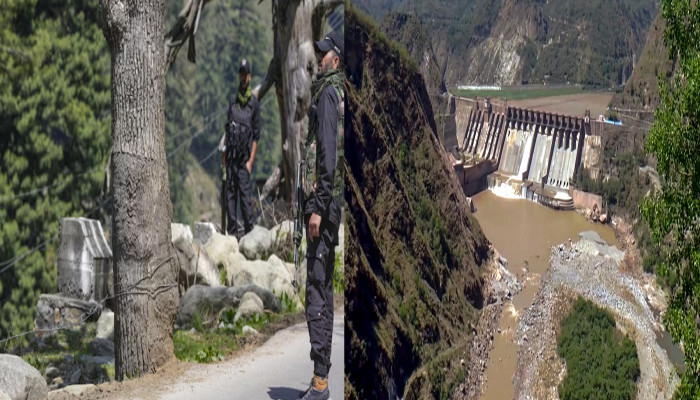India turns off tap: No Indus waters for Pakistan, says Jal Shakti minister
- In Reports
- 11:09 AM, Apr 26, 2025
- Myind Staff
Union Jal Shakti Minister CR Patil has firmly backed the Central Government’s decision to suspend the Indus Waters Treaty. He said that India will make sure not even a single drop of water from the Indus River flows into Pakistan. His statement came after a high-level meeting held at Home Minister Amit Shah’s residence on Friday, which was attended by top officials.
In a post on X, Patil said, "The historic decision taken by the Modi government on the Indus Water Treaty is completely justified and in the national interest. We will ensure that not even a drop of water from the Indus River goes to Pakistan." India has officially informed Pakistan that it is stopping its responsibilities under the 1960 Indus Waters Treaty. This message was sent on Thursday by the Jal Shakti Ministry to Syed Ali Murtuza, Secretary of Pakistan’s Ministry of Water Resources. The decision came after a terror attack in Pahalgam, Jammu and Kashmir, which resulted in 26 deaths and several injuries.
In the letter, the ministry said, "The obligation to honour a treaty in good faith is fundamental to a treaty. However, what we have seen instead is sustained cross-border terrorism by Pakistan targeting the Indian Union Territory of Jammu and Kashmir." Patil said that during the meeting with Union Home Minister Amit Shah, they discussed a clear plan to stop the flow of water to Pakistan. He also mentioned that desilting work would start soon to help redirect the water. Speaking to ANI, Patil said, "A roadmap was prepared in the meeting with Union Home Minister Amit Shah. Three options were discussed in the meeting. The government is working on short-term, medium-term, and long-term measures so that not even a drop of water goes to Pakistan. Soon, desilting of rivers will be done to stop the water and divert it."
On April 23, India officially suspended the Indus Waters Treaty, stating that Pakistan should not receive "a single drop of water." This decision was made in response to what India called ongoing cross-border terrorism from Pakistan that has been targeting Jammu and Kashmir. Debashree Mukherjee, Secretary, Ministry of Jal Shakti, wrote to Syed Ali Murtaza, Secretary, Ministry of Water Resources, Pakistan, stating, "The Govt of India has hereby decided that the Indus Waters Treaty 1960 will be held in abeyance with immediate effect," in a formal communication to Islamabad. The action has drawn harsh criticism from Pakistan, which has described it as provocative. In a statement released on Thursday, it stated, "Any attempt to stop or divert the flow of water belonging to Pakistan as per the Indus Waters Treaty... will be considered as an Act of War and responded with full force across the complete spectrum of National Power."
On April 22, a terrorist attack took place in the Pahalgam area of Anantnag district in Jammu and Kashmir, where 26 people lost their lives and more than a dozen were injured. The attackers opened fire on a group of tourists at the Baisaran meadow. This has been one of the deadliest attacks in the region since 2019. The incident has caused widespread outrage across the country, with people demanding a strong and quick response from the government. In reaction to the attack, the Indian government took tough action against Pakistan. These steps included suspending the Indus Waters Treaty of 1960, stopping the flow of water to Pakistan, and closing the Integrated Check Post (ICP) at Attari, which is one of the main land border crossings between the two countries. India took some extra steps, including stopping travel benefits under the SAARC Visa Exemption Scheme and cancelling visas that had already been given to Pakistani citizens.
It also blocked access to Pakistan’s official account on X (formerly Twitter) for users in India and told all Pakistani nationals currently in the country to leave within 48 hours. In return, Pakistan strongly objected to the treaty being suspended, saying it is crucial for meeting the water needs of its 240 million people. As a countermeasure, Pakistan cut off trade with India and warned it might cancel the 1971 Simla Agreement, which has been a key part of diplomatic relations between the two countries.







Comments